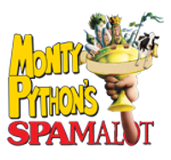Python Slot Machine
- Monty Python Slot Machine Black Knight
- Monty Python Slot Machine Location
- Python Slots Class
- Slots In Python
- Python Slot Machine
Max Free Spins Python Slot Machine Source Code winnings £100. Skrill + Neteller excluded. Always refer to Bonus Terms – www.begambleaware.org. Real Money Casinos Mobile Casinos. Thank you for your. (16) 16 product ratings - Brybelly 1000-Count Cherry Slot Machine Tokens – Premium Pachislo & IGT Slot. Bally Alpha Elite S9000 CPU MPU With 1GHz Slot Machine. Bally 6000 or 9000 Slot Machine.

- #use python to write a code that allows the user to play a simulated slot machine using tokens
- #give them 100 tokens to start out with but every game makes them loose one
- # if they spin 3 of the same number they win tokens 1 = 4, 2 = 8, 3 = 12
- tokens =100
- print'Welcome to slots! You start with 100 coins and loose one each time you spin the slot machine'
- print'If you spin 3 of the same number you win coins'
- yes_no =raw_input('would yo like to play slots? Y or N')
- tokens = tokens - 1
- number2 =random.randint(1,3)
- print number1 ,',', number2 ,',', number3
- if number1 1:
- if number1 2:
- if number1 3:
- print'you have', tokens ,'tokens'
- yes_no =raw_input('would yo like to play slots? Y or N')
- print'goodbye'
- print'you ran out of tokens:
- print 'invalid input'
Next Chapter: A Python Class for Polynomial Functions
Slots
Avoiding Dynamically Created Attributes
The attributes of objects are stored in a dictionary __dict__. Like any other dictionary, a dictionary used for attribute storage doesn't have a fixed number of elements. In other words, you can add elements to dictionaries after they are defined, as we have seen in our chapter on dictionaries. This is the reason, why you can dynamically add attributes to objects of classes that we have created so far:

The dictionary containing the attributes of 'a' can be accessed like this:
You might have wondered that you can dynamically add attributes to the classes, we have defined so far, but that you can't do this with built-in classes like 'int', or 'list':
Using a dictionary for attribute storage is very convenient, but it can mean a waste of space for objects, which have only a small amount of instance variables. The space consumption can become critical when creating large numbers of instances. Slots are a nice way to work around this space consumption problem. Instead of having a dynamic dict that allows adding attributes to objects dynamically, slots provide a static structure which prohibits additions after the creation of an instance.
Monty Python Slot Machine Black Knight
When we design a class, we can use slots to prevent the dynamic creation of attributes. To define slots, you have to define a list with the name __slots__. The list has to contain all the attributes, you want to use. We demonstrate this in the following class, in which the slots list contains only the name for an attribute 'val'.
If we start this program, we can see, that it is not possible to create dynamically a new attribute. We fail to create an attribute 'new'.
Monty Python Slot Machine Location

Python Slots Class

We mentioned in the beginning that slots are preventing a waste of space with objects. Since Python 3.3 this advantage is not as impressive any more. With Python 3.3 Key-Sharing Dictionaries are used for the storage of objects. The attributes of the instances are capable of sharing part of their internal storage between each other, i.e. the part which stores the keys and their corresponding hashes. This helps reducing the memory consumption of programs, which create many instances of non-builtin types.
Slots In Python
Next Chapter: A Python Class for Polynomial Functions